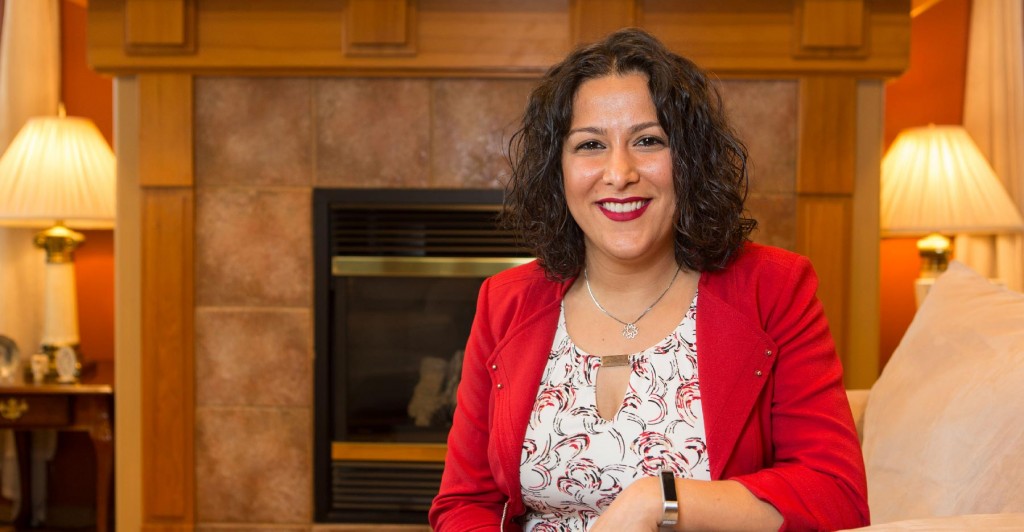Page 18 • (207 results in 0.114 seconds)
-

of North America’s indigenous populations even as she’s learning those of Latin America. “One of the biggest challenges for me designing this class … is I had to figure out which U.S. and Canadian native authors have been translated into Spanish,” Call said. “It was really interesting to see that some people that I think of as being very central to U.S.-based Native literature studies have not been translated at all.” Call will return to Colombia twice more as part of her Fulbright’s flexible
-

, removing trade barriers, opening investment flows and aggregately reducing the provision of social services and support to rural and poor populations. A prominent feature of the neoliberal political-economy has been not only the increase of migration as an economic strategy, but also the elevated presence of nongovernmental organizations (NGOs) doing work in development, with a diverse spectrum of practices and philosophies. Through my experience in Pacific Lutheran University’s Oaxaca study abroad
-
included: . Be sure to pay attention to specific methodological considerations if you are doing online surveys, research with vulnerable populations, recording or paying your participants, etc. See the HPRB website for more information.Why am I getting weird formatting when I type (and how do I make it go away)?Track changes may be on (it is the default setting). Turn it off by clicking on the little document icon with the pencil. Do this when entering text for your proposal, but leave track changes
-

solutions — and that’s what we’re seeing now.” – Brian Lloyd ’88DIFFERENT POPULATIONS, DIFFERENT NEEDSIndividuals seeking affordable housing encompass a spectrum of housing and social needs. Some need the consistency of multi-year secure housing so they can maintain employment or so their children can attend the same school for consecutive years. Others are in need of wraparound services to stabilize their mental health. “It’s not so easy to just ‘get a job, stop living in a tent or car, and clean
-

airline ticket for the one she canceled. Compiling a list of essentials. Gathering essentials at stores unfamiliar to her upon her arrival. Setting up bank and cellphone accounts. After it was all said and done, Sabet-Kazilas sat in an empty Red Square, quietly reflecting on the journey. “The reality hit me hard,” she said. FAMILIAR VALUES Sabet-Kazilas’ desire to come to the U.S. grew out of her desire to serve other marginalized Iranians. She worked with underprivileged populations back home
-
nursing, critical analysis of nursing practice, nursing theories and epistemology, ethics, nursing care provided to marginalized populations, power relationships between healthcare professionals and patients, and finally, gender issues in nursing.Overview of Publications Conference ScheduleCarli SnyderPresentation Title: “Memories of Gusen: U.S Army Nurses’ Reflections on Witnessing the Liberation of a Concentration Camp” Who: Ms. Carli Snyder, doctoral student in the History Ph.D. program at the City
-
the building’s walls. Ri Knouse Exploring Systems: Why is Our Carceral State Like This?When examining populations affected by the United States carceral system, lines are blurred as to where punishment ends; does it end with the fulfillment of the sentenced time of incarceration, or does it bleed into life post-release? This paper addresses the question of whether or not the carceral system built in the United States capitalistic society is set up to disadvantage incarcerated individuals from
-

other complex forms of engineering. Populations live in locations where, without human manipulation of water, they would otherwise be unable to survive. Humans are becoming increasingly capable of fending off Mother Nature and doing what works best for industry. Still, there are times when she gets the better of us. Low water levels along the river have been causing problems for traffic along our nation’s most significant aquatic thoroughfare. The ripple effect from these issues can reach far and
-

have been doing for years. I also have a newfound love for “resiliency.” Resiliency is probably one of the most beautiful things I have ever seen in my life, and in working with the populations that I do, I am continually blown away by human resiliency. What motivates you? Bah. Today? I’m not sure (laughs). I’m motivated by the hopes of making a difference. I live religiously by the quote that I originally used on my PLU admissions essay to answer the question by Mary Oliver, “What will you do with
-

-being of our Parkland community.”Collaborating for (Health) CareIn February 2024, PLU, MultiCare Health System and Washington State University’s Elson S. Floyd College of Medicine announced the Partnership for Health Innovation. The new initiative unites the three organizations around two common goals: preparing students to become local health care leaders and improving health outcomes in Pierce County, particularly for traditionally underserved and vulnerable populations in Parkland and the
Do you have any feedback for us? If so, feel free to use our Feedback Form.


